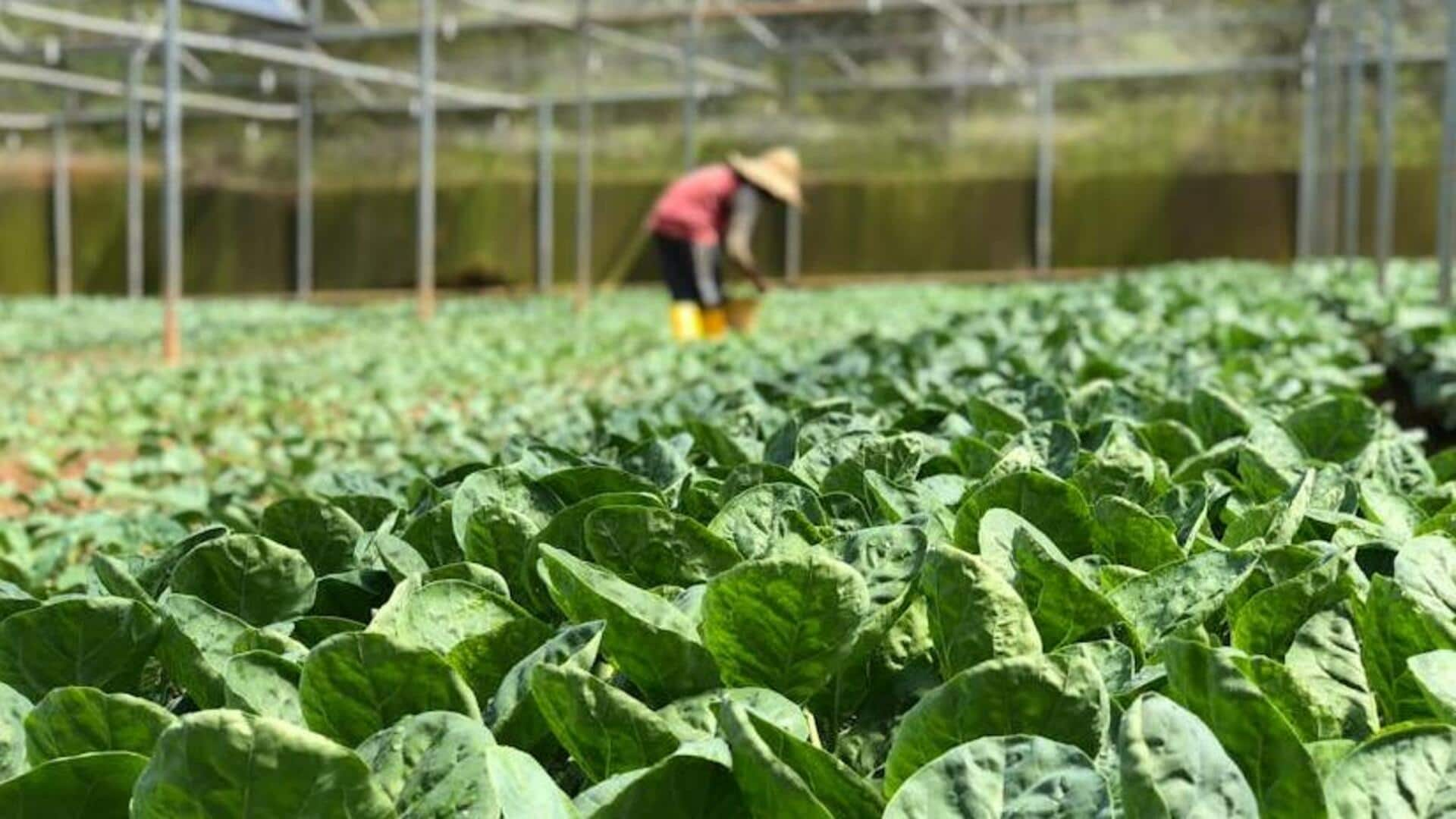
Declutter your vegetable garden for thriving plant life
What's the story
Decluttering your vegetable garden is a key step in ensuring your plants grow healthily and produce bountiful yields. Over time, gardens can become cluttered and chaotic, filled with unwanted items or plants that may be stunting the growth of your veggies. By following a few simple decluttering strategies, you can optimize your garden space, paving the way for a vibrant and productive vegetable harvest.
Weed control
Identify and remove weeds regularly
Weeds compete with vegetables for nutrients, water, and sunlight, which can stunt vegetable growth. Recognizing and eliminating weeds is key. Set aside time each week to check your garden for emerging weeds and remove them by the root to stop their regrowth. Not only will your garden look tidier, but by removing weeds, you'll also ensure that resources are devoted to nourishing your vegetables.
Spacing
Optimize plant spacing
Adequate spacing between plants is crucial for their growth. Overcrowded plants compete for sunlight and air circulation, resulting in stunted growth or disease. Always consult planting guides or seed packets for recommended spacing specific to each vegetable variety. Thinning out seedlings may seem difficult initially, but it's essential for the overall health of your garden.
Vertical gardening
Implement vertical gardening techniques
Vertical gardening is a great way to utilize space efficiently in small gardens and keep things tidy. Opt for trellises, stakes, or vertical planters for climbing veggies like tomatoes, cucumbers, and beans. This not only conserves ground space but also improves air circulation around plants, minimizing the risk of fungal diseases.
Mulching
Utilize mulching
Adding a layer of mulch around your vegetable plants can greatly assist in keeping the garden tidy by inhibiting weed growth and preserving soil moisture. Organic mulches such as straw or shredded leaves also contribute to soil fertility by releasing nutrients as they decompose. Maintain a two to three-inch layer of mulch around plants, but keep it away from direct contact with their stems to avoid rot.
Pruning
Regularly prune overgrown plants
Pruning overgrown or dead parts from your vegetable plants is essential for keeping a tidy garden space and promoting healthier growth. By eliminating these parts, you increase airflow between plants and optimize sunlight penetration throughout the garden area. This is crucial for photosynthesis, the lifeblood of every plant's life cycle, guaranteeing they flourish and contribute to a more productive vegetable garden.